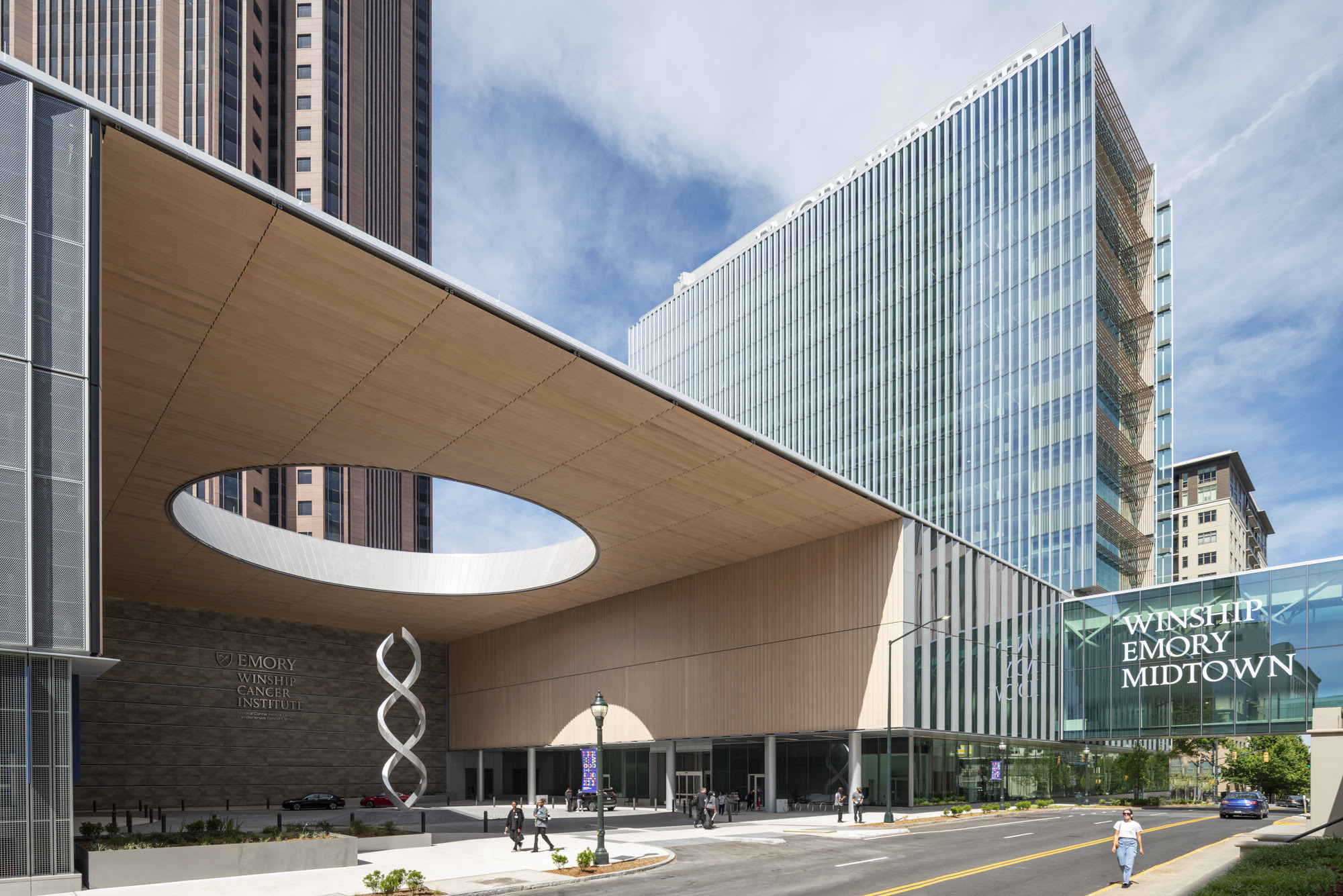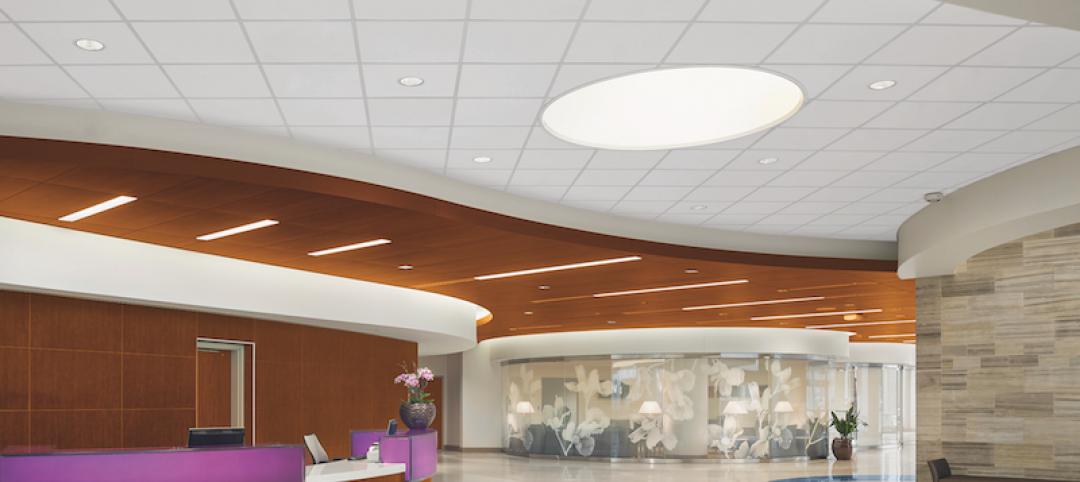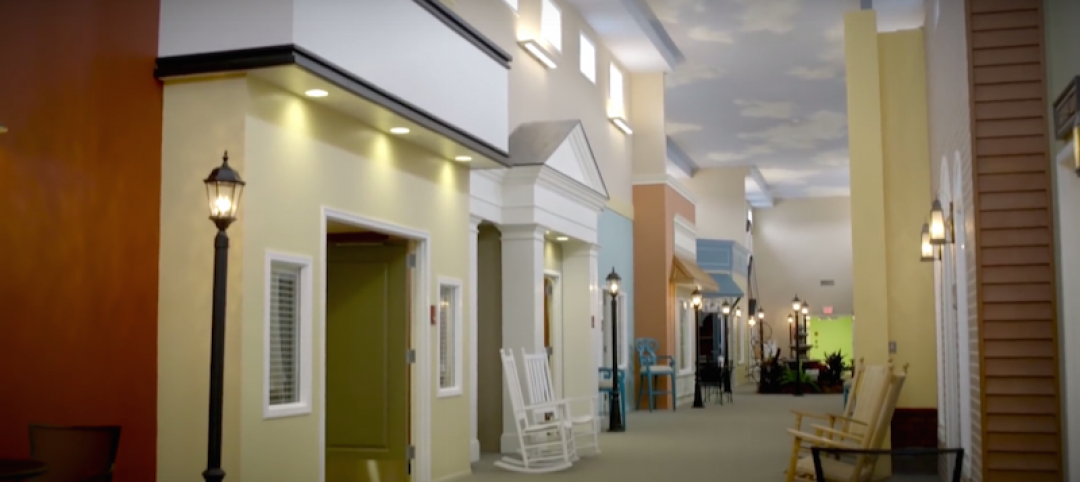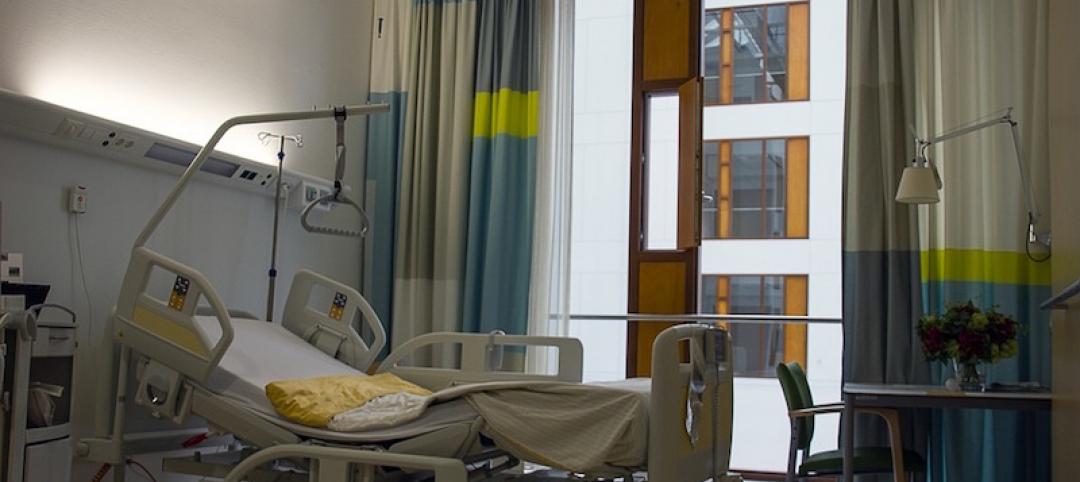In May, Atlanta’s new Winship Cancer Institute at Emory Midtown welcomed its first patients. The 17-story, 450,000-sf facility adds inpatient, outpatient, and research facilities to Emory University Hospital Midtown and Winship Cancer Institute.
Designed by Skidmore, Owings & Merrill (SOM) and May Architecture, the facility includes comprehensive oncology facilities—including inpatient beds, surgical capacity, infusion treatment, outpatient clinics, diagnostic imaging, linear accelerators, and areas for wellness, rehabilitation, and clinical research.
To design the facility, SOM and May Architecture used a highly collaborative process involving more than 160 stakeholders across Winship’s leadership, patients, clinicians, volunteers, staff, and construction teams.
The building features two-story care communities, each focused on a specific type of cancer. Services typically distributed throughout a hospital are instead organized into one-stop destinations that combine exam, consultation, infusion, and supportive functions.
These care communities reduce or eliminate patients’ waiting times. In addition, they bring fellow patients and families together and allow specialists to visit both inpatients and outpatients without having to leave the two floors.
The care communities informed the exterior’s two-story façade increments. The building’s transparent storefront welcomes patients and visitors with a drop-off valet area that leads into the main lobby. Amenities throughout the building include a retail boutique, pharmacy, wellness center, cafe, and multipurpose spaces for future offerings of yoga, music therapy, education, and art therapy.
Thanks to an energy-efficient design, the Winship Cancer Institute will expend 40% less energy annually than the average Atlanta hospital, according to a press statement. The building also features energy-efficient recovery mechanical equipment, with chilled beams and direct-outside air units. The high-performance facade optimizes glazing and window-to-wall ratios. And water use is reduced through the collection of stormwater for irrigation and chiller plants.
On the Building Team:
Owner: Emory University Healthcare
Architect and structural engineer: Skidmore, Owings & Merrill (SOM)
Clinical architect: May Architecture
MEP and lighting: Newcomb & Boyd
Civil engineering and landscape design: Kimley-Horn
Construction manager: Batson-Cook Construction


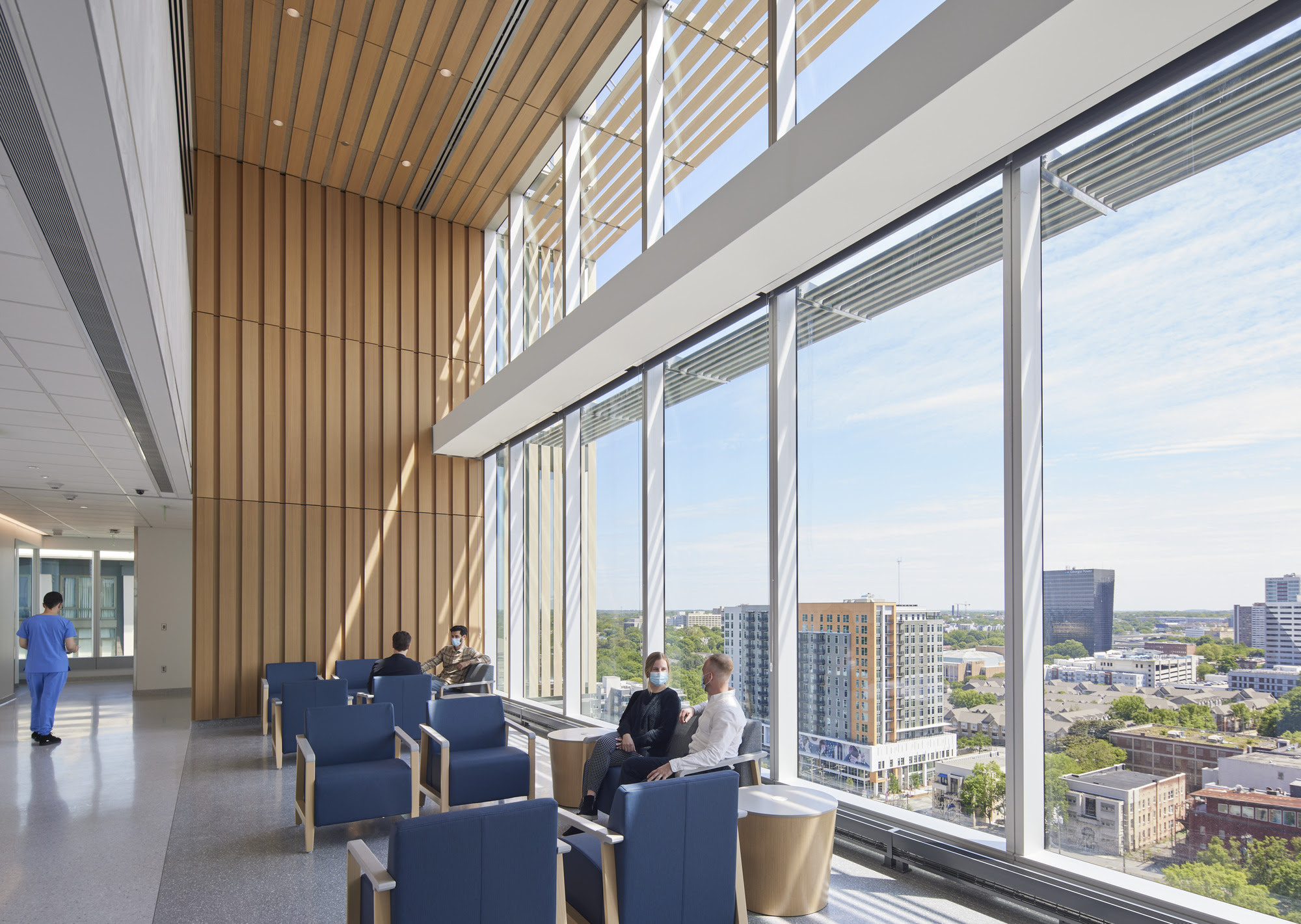
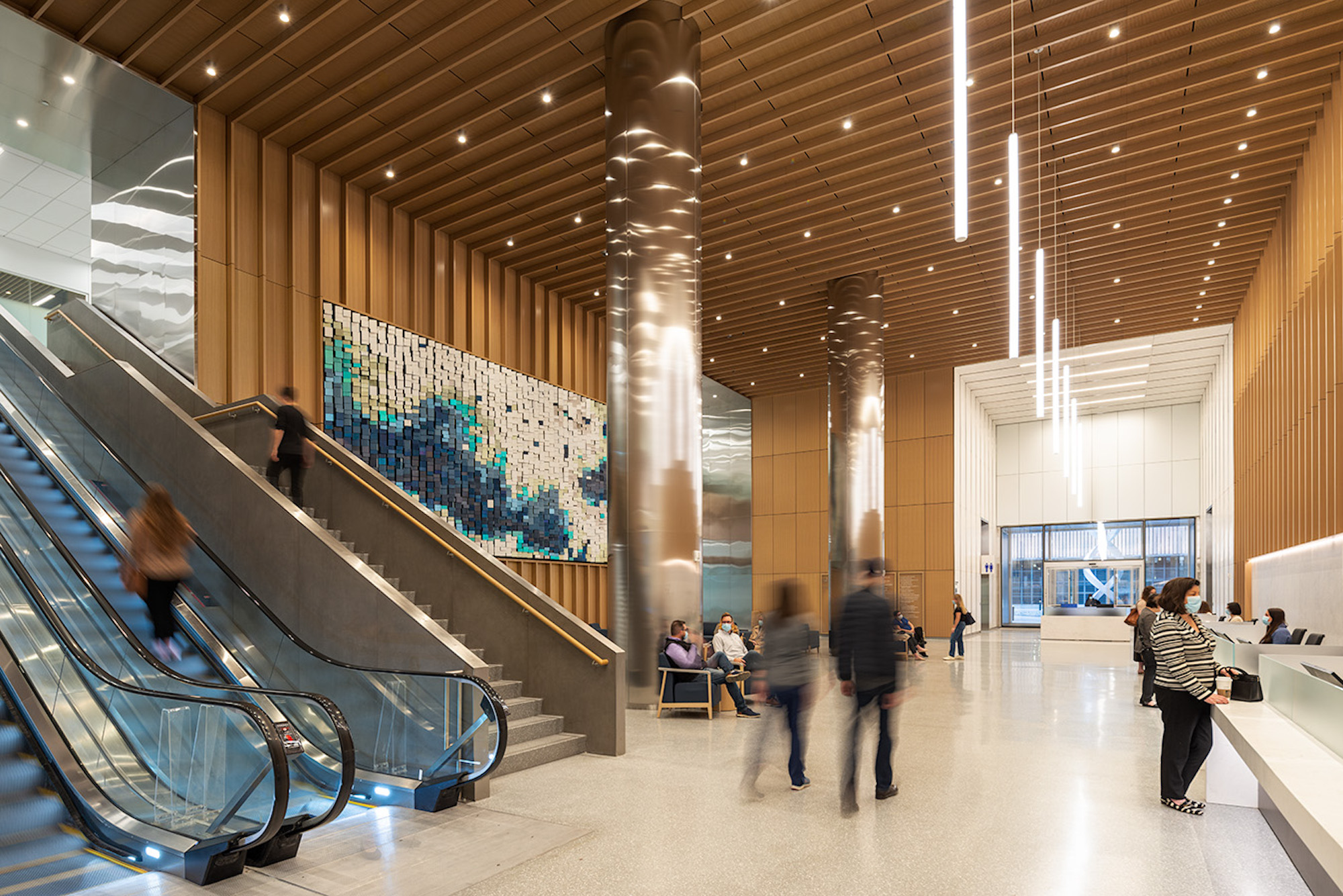
Related Stories
Sponsored | Healthcare Facilities | Oct 26, 2016
Rx for noise control at Virginia hospital: Large dose of acoustical ceilings
A myriad of acoustical ceiling solutions aid in patient comfort and recuperation.
Sponsored | Healthcare Facilities | Oct 24, 2016
Cyclotron streamlines isotope production
The 70 MeV, 140-ton cyclotron was manufactured by Ion Beam Applications (IBA) in Belgium.
Industry Research | Oct 20, 2016
New book from HDR explores opportunities for how healthcare organizations can reinvent the patient experience
Delta offers a close look at specific activities and behaviors that can help healthcare providers and caregivers discover revolutionary concepts to help them embrace and thrive in the rapid change that surrounds them.
Lighting | Oct 6, 2016
Healthcare systems lighting their way to savings
There has been a rapid improvement and availability of LED products as primary light sources in most healthcare facility applications.
Healthcare Facilities | Sep 28, 2016
Assisted living facility resembles a quaint American neighborhood
The design is not just meant to be aesthetically pleasing, but can also help patients with dementia and Alzheimer’s.
Healthcare Facilities | Sep 16, 2016
Healthcare architect turned patient: What I learned when admitted to a facility I helped design
Discovering new ways design can—and can’t—improve the patient experience.
Healthcare Facilities | Sep 14, 2016
Details of the largest healthcare construction project in North America revealed by CannonDesign and NEUF architect(e)s
The project will combine three aging hospitals into one complex.
Healthcare Facilities | Sep 7, 2016
The merger of physical healthcare and digital care: Why is it important?
As healthcare costs continue to increase, operators are exploring new delivery models and social platforms to personalize the provision of healthcare services. These companies are pouring resources into this field to create more personalized, secure, and affordable health and wellness options.
Healthcare Facilities | Sep 6, 2016
Chicago Faucets releases white paper: Reducing the risk of HAIs in healthcare facilities
The white paper discusses in detail four options used to mitigate transmission of waterborne bacteria
Healthcare Facilities | Aug 30, 2016
The Program of All-Inclusive Care for the Elderly is making large strides
A typical PACE center is comprised of a fully functioning and equipped primary care clinic, adult day center and rehabilitation therapy gym.


